Agriculture
While Europeans Vacation, Denmark Attacks Livestock Farmers With Cow Tax
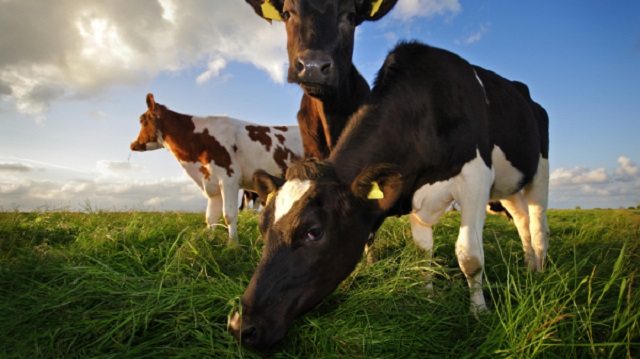
From Heartland Daily News
By Andrew Weiss
Economics aside, this policy will have no effect on global temperatures. Even if the entire European Union halted all emissions (including livestock) the global temperatures would be reduced by only 0.12 degrees Celsius by the year 2100, assuming the highest climate sensitivity to carbon.
As Europeans generate greenhouse gas emissions by driving or flying off on their long summer holidays, Denmark is trying to lower those emissions by taxing cow burps and flatulence to combat climate change.
The Danish government believes that taxing methane produced by animals will improve the lives of citizens by lowering global temperatures. Therefore, beginning in 2030, livestock farmers will be taxed $17 per ton of carbon dioxide-equivalent emitted by their livestock. That tax will increase to $43 by 2035.
The average cow emits the CO2 equivalent of about three tons per year in methane, so each cow will cost farmers $50 in 2030, reaching about $125 by 2035.
Other livestock such as sheep and pigs are also subject to the methane tax, but they emit less methane because of differences in the chemistry of their digestive systems.
But two professors—William A. van Wijngaarden of York University in Canada and William Happer of Princeton University—argue that restrictions on methane emissions are “not justified by facts.”
CO2 currently makes up about 420 ppm (parts per million), which is 0.042% of the atmosphere. Methane is a much lower 1.9 ppm, or about 0.0002% of the atmosphere.
Methane is increasing in the atmosphere at a rate of about 0.0076 ppm per year, while CO2 is increasing at a rate 300 times faster, or 2.3 ppm a year.
The methane molecule is about 30 times better at trapping heat than the carbon dioxide molecule. Therefore, methane contributes about one-tenth the warming of CO2.
Effect on the Economy
Denmark’s new animal tax will raise food prices. Prices for beef and milk will go up, percolating throughout the nation’s economy. Denmark’s economy contracted 1.8% last quarter and the inflation rate is 2.1%, but expect to see inflation increase with the new animal tax. The tax will disproportionately affect middle-income earners and the poor.
At the same time, farmers will see smaller profit margins. Some farmers will reduce their numbers of cows and shift to other animals or grain. Others might sell their farms and change occupations.
In America, the majority of beef farms are run by small operations. According to the U.S. Department of Agriculture, 54% of farms with beef cattle had fewer than 20 cows. On such a farm, raising a cow costs about $900 per year.
A U.S. methane tax identical to Denmark’s would be the same as an additional 15% tax on cattle. This would be devastating to small ranchers who are already pinched by increased overhead costs.
The Danish policy taxes carbon at $43 per ton. This so-called social cost of carbon is priced even higher here in America, and is an easily manipulated price tag that the government puts on carbon emissions.
Last fall, the U.S. Environmental Protection Agency proposed $190 per ton as the social cost of carbon to make its policies seem worth the regulatory burden. If taxed at this price level, a 20-cow operation would owe Uncle Sam an additional $11,000 per year.
Effect on Carbon Emissions
All 1.5 million cows in Denmark account for about 0.1% of the European Union’s annual 3.6 billion tons of greenhouse emissions.
The chart below compares greenhouse gas emissions by Danish cattle to emissions in all of Denmark and in the entire European Union.

When it comes to the atmospheric concentration of carbon dioxide, CO2 emitted in Denmark is no different than CO2 emitted anywhere else in the world.
If Danish lawmakers are concerned about CO2-caused climate change, the cost of the tax policy needs to be weighed against the global effect on emissions.
In 2022, India emitted 189 million metric tons more than it did in 2021. This is more than four times the entire carbon footprint of Denmark.
Effect on Global Climate
Economics aside, this policy will have no effect on global temperatures. Even if the entire European Union halted all emissions (including livestock) the global temperatures would be reduced by only 0.12 degrees Celsius by the year 2100, assuming the highest climate sensitivity to carbon.

These numbers are calculated using The Heritage Foundation’s climate calculator, which uses a government climate model. (You can use the calculator for yourself here.)
From Denmark to California
Although such policies may seem unlikely to take hold in freedom-loving America, similarly intrusive regulations already have been implemented across multiple sectors. These regulations affect everything in the U.S. from large-scale power plants and the automotive industry to everyday household items such as gas stoves, water heaters, and lawn equipment.
In some states, including New York and California, building codes now prohibit gas hookups in many new construction projects, denying residents the right to decide for themselves what energy sources to use.
As of Jan. 1, it became illegal to buy gas-powered lawn equipment such as lawnmowers, leaf blowers, or chainsaws in California. This law will cost landscaping businesses over $1 billion and raise the price of landscaping services, causing some to lose their jobs and business closures.
It is time to stop perpetuating the fairy tale that taxing cow burps will reduce global temperatures. Such regulations only increase food costs and inflation in general, making poverty even worse.
Andrew Weiss is a research assistant for domestic policy at The Heritage Foundation.
Originally published by The Daily Signal. Republished with permission.
Agriculture
In the USA, Food Trumps Green Energy, Wind And Solar
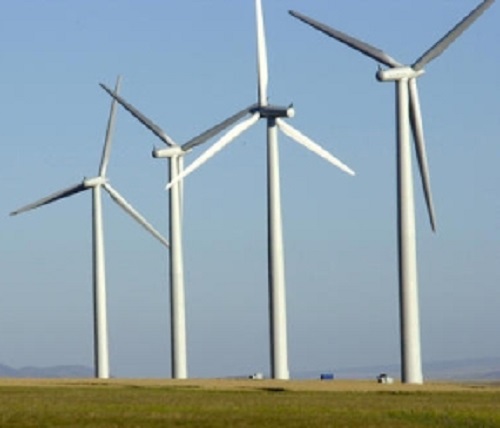

From the Daily Caller News Foundation
By Bonner Cohen
“We will not approve wind or farmer destroying Solar,” said President Trump in an Aug. 20 post on Truth Social. “The days of stupidity are over in the USA!!!”
Trump’s remarks came six weeks after enactment of his One Big Beautiful Bill terminated tax credits for wind and solar projects by the end of 2027.
The Trump administration has also issued a stop-work order for the Revolution Wind project, an industrial-scale offshore wind project 12 miles off the Rhode Island coast that was 80 percent completed. This was followed by an Aug. 29 announcement by the Department of Transportation that it was cutting around $679 million in federal funding for 12 offshore wind farms in 11 states, calling the projects “wasteful.”
Sending an unmistakable message to investors to avoid risking their capital on no-longer-fashionable green energy, the Department of Agriculture (USDA) is pulling the plug on a slew of funding programs for wind and solar power.
“Our prime farmland should not be wasted and replaced with green new deal subsidized solar panels,” said Agriculture Secretary Brooke Rollins on a visit to Tennessee in late August. “We are no longer allowing businesses to use your taxpayer dollars to fund solar projects on prime American farmland, and we will no longer allow solar panels manufactured by foreign adversaries to be used in our USDA-funded projects.”
The White House is putting the squeeze on an industry that can ill-afford to lose the privileges it has enjoyed for so many years. Acknowledging the hesitancy of investors to fund green-energy projects with the looming phaseout of federal subsidies, James Holmes, CEO of Solx, a solar module manufacturer, told The Washington Post, “We’re seeing some paralysis in decision-making in the developer world right now.” He added, “There’s been a pretty significant hit to our industry, but we’ll get through it.”
That may not be easy. According to SolarInsure, a firm that tracks the commercial performance of the domestic solar industry, over 100 solar companies declared bankruptcy or shut down in 2024—a year before the second Trump administration started turning the screws on the industry.
As wind and solar companies confront an increasingly unfavorable commercial and political climate, green energy is also taking a hit from its global financial support network.
The United Nations-backed Net Zero Banking Alliance (NZBA) “has suspended activities, following the departure of numerous financial institutions from its ranks amid political pressure from the Trump administration,” The Wall Street Journal reported. Established in 2021, the NZBA’s 120 banks in 40 countries were a formidable element in global decarbonization schemes, which included support for wind and solar power. Among the U.S. banks that headed for the exits in the aftermath of Trump’s election were JP Morgan, Citi, and Morgan Stanley. They have been joined more recently by European heavyweights HSBC, Barclays, and UBS.
Wind and solar power require a lot of upfront capital, and investors may be having second thoughts about placing their bets on what looks like a losing horse.
“Wind and solar energy are dilute, intermittent, fragile, surface-intensive, transmission-extensive, and government-dependent,” notes Robert Bradley, founder and CEO of the Institute for Energy Research.
Given these inherent disadvantages of wind and solar power, it’s no surprise that the Department of Agriculture is throttling the flow of taxpayer money to solar projects. The USDA’s mission is to “provide leadership on food, agriculture, food, natural resources, rural development, nutrition, and related issues….” It is not to help prop up an industry whose best days are behind it.
Effective immediately, wind and solar projects will no longer be eligible for USDA Rural Development Business and Industry (B&I) Guaranteed Loan Program. A second USDA energy-related guaranteed loan program, known by the acronym REAP, will henceforth require that wind and solar installations on farms and ranches be “right-sized for their facilities.”
If project applications include ground-mounted solar photovoltaic systems larger than 50 kilowatts or such systems that “cannot document historical energy usage,” they will not be eligible for REAP.
Ending Misallocation Of Resources
“For too long, Washington bureaucrats and foreign adversaries have tried to dictate how we use our land and our resources,” said Republican Rep. Harriot Hagermann of Wyoming. “Taxpayers should never be forced to bankroll green new deal scams that destroy our farmland and undermine our food security.”
Hagermann’s citing of “foreign adversaries” is a clear reference to China, which is by far the world’s leading manufacturer of solar panels, according to the International Energy Agency.
According to a USDA study from 2024, 424,000 acres of rural land were home to wind turbines and solar arrays in 2020. While this – outdated – figure represents less than 0.05 percent of the nearly 900 million acres of farmland in the U.S., the prospect of ever-increasing amounts of farmland being taken out of full-time food production to support part-time energy was enough to persuade USDA that a change of course was in order.
Bonner Russell Cohen, Ph. D., is a senior policy analyst with the Committee for a Constructive Tomorrow (CFACT).
Agriculture
USDA reverses course under Trump, scraps Biden-era “socially disadvantaged” farm rules
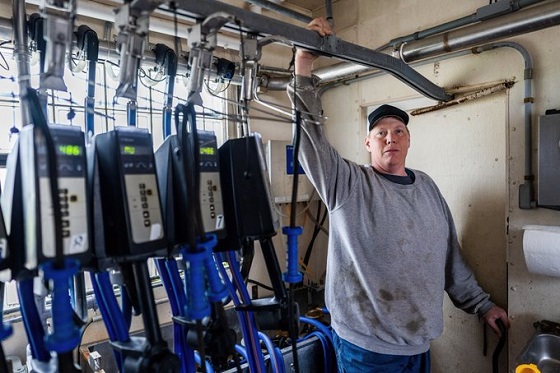
Quick Hit:
The Trump administration’s USDA is pulling back from defending Biden-era farm aid programs that gave preferential treatment based on race and gender. The move aligns with President Trump’s directive to dismantle remaining diversity, equity, and inclusion initiatives across federal agencies.
Key Details:
- The Wisconsin Institute for Law and Liberty (WILL) sued on behalf of dairy farmer Adam Faust, challenging USDA aid programs that favor minorities and women.
- Programs under scrutiny include loan guarantees, dairy coverage, and conservation incentives, all of which disadvantaged white male farmers.
- USDA issued a final rule eliminating “socially disadvantaged” designations, stating programs must uphold meritocracy, fairness, and equal opportunity.
Diving Deeper:
The U.S. Department of Agriculture under the Trump administration is abandoning its defense of farm aid programs created during the Biden years that granted benefits based on race and gender. In a recent court filing, the USDA declined to defend several programs that civil rights watchdogs argue discriminated against white male farmers.
The litigation was brought forward by the Wisconsin Institute for Law and Liberty (WILL) on behalf of Adam Faust, a Wisconsin dairy farmer. Faust contends that the Biden-era rules violated equal protection principles by privileging minorities and women over others in loan guarantees, dairy margin coverage, and conservation cost-share programs.
Under the loan guarantee program, minority and female farmers could secure up to 95% federal backing on loans, while white male farmers were limited to 90%. This disparity directly affected borrowing power and interest rates. Similarly, the Dairy Margin Coverage Program charged white male farmers a $100 annual fee, while exempting “socially disadvantaged” farmers. In conservation projects, minority and female participants received up to 90% reimbursement for costs, while others received only 75%.
On July 10, the USDA issued a final rule to strike the “socially disadvantaged” designation from its regulations, calling it inconsistent with constitutional principles and with President Trump’s policy objectives. “Moving forward,” the USDA rule stated, “USDA will no longer apply race- or sex-based criteria in its decision-making processes, ensuring that its programs are administered in a manner that upholds the principles of meritocracy, fairness, and equal opportunity for all participants.”
The department noted that while the loan guarantee program will be amended immediately, officials are still reviewing how to apply the new policy to the dairy and conservation programs. The USDA also signaled that its decision “could obviate the need for further litigation,” though WILL has indicated its legal fight will continue.
“This lawsuit served as a much-needed reminder to the USDA that President Trump has ordered the end to all federal DEI programs,” said Dan Lennington, deputy legal counsel at WILL. “There’s more work to be done, but today’s victory gives us a clear path to do even more in the name of equality.”
-

 Alberta1 day ago
Alberta1 day agoAlberta Education negotiations update: Minister Horner
-

 Alberta1 day ago
Alberta1 day agoBreak the Fences, Keep the Frontier
-

 Business2 days ago
Business2 days agoCarney Admits Deficit Will Top $61.9 Billion, Unveils New Housing Bureaucracy
-

 Opinion1 day ago
Opinion1 day agoRFK Jr. Reveals Unforgettable Details About Charlie Kirk in Emotional Tribute
-
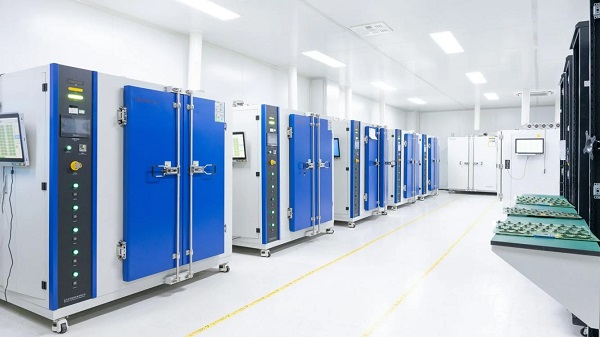
 Artificial Intelligence2 days ago
Artificial Intelligence2 days agoWhat are data centers and why do they matter?
-
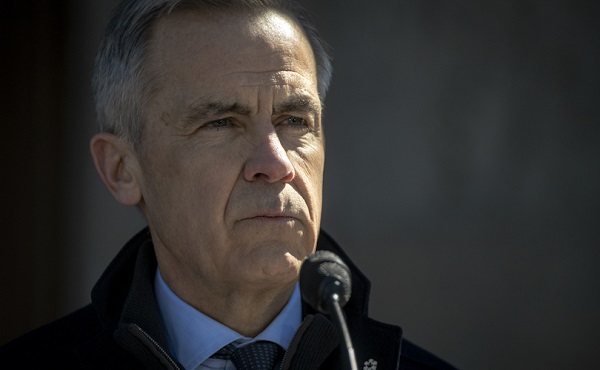
 Business1 day ago
Business1 day agoCarney’s Ethics Test: Opposition MP’s To Challenge Prime Minister’s Financial Ties to China
-

 Business1 day ago
Business1 day agoCarney government’s housing GST rebate doesn’t go far enough
-

 Media1 day ago
Media1 day agoCancel culture wins ultimate victory as murder of Charlie Kirk ghoulishly celebrated by radical Left, media included



